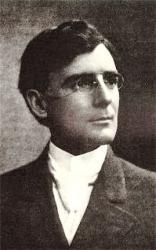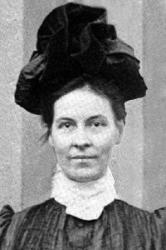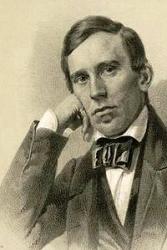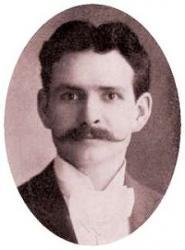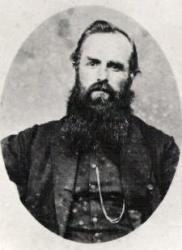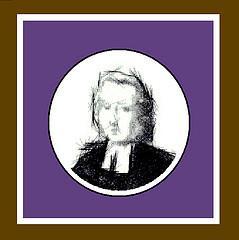
1725 - 1761 Person Name: E. G. Woltersdorf Author of "Nun hab ich Heil gefunden" in Pilgerklänge Woltersdorf: Ernst Gottlieb W., as a hymn writer, preacher, prolific writer and educators in the field of Erbauungslitteratur one of the most outstanding representatives of pietistic healthy heart and mind towards the middle of the 18th Century. He was born on 31 May 1725 as the sixth son of the preacher to Gabriel Luke Friedrichsfelde in Berlin, who was appointed 10 years after its birth as a preacher at the St. George Church in Berlin. The blessing of a serious Christian education accompanied him to the Berlin High School to the gray convent, from which he received in 1742, only 17 years old, the University of Halle, to be under the direction of the pietistic school teachers belonging to J. Lange, Michael, Baumgarten and Knapp to pay the theological studies. He lived in the Francke'schen orphanage, took part in the lessons in the same upside down, with young men of serious Christian spirit. After the deep impressions he had received from the institutions prevailing in the Francke'schen spirit, he was a pious poet and preacher, the deacon from Köthen teaching, by means of a collegium in the same hall to biblicum held lecture "from the Dear Jesus, "so moved that he by his own testimony to that time in the experience of the truth of salvation in Christ alone is more deeply founded and was able to sit with deliberate, fervent belief in salvation now enthusiastic songs of this testimony. He was no course of internal disputes and disturbances as a result of failed ideas and feelings about certain characteristics of higher or lower level in a state of grace and the work of sanctification. But the road with like-minded friends, the discipline that the regular work exerted in his Schulthätigkeit about him and above all the deepening of his inner life in the biblical truth of the human with no benefits and earnings-related healing properties in the sonship with God did not make him only in Halle, but after traveling in the Ukermark, Mecklenburg, Pomerania, and Saxony, where he geistgesalbten preachers, including the Abbot Steinmetz appeared in Magdeburg, and with faith, mostly Christian-minded lay people of higher and lower levels in the intimate connection of all those inner battles to win and achieve victory even Glaubensfreudigkeit. This led him then to everywhere, to practice diligently in preaching. The resulting received and experienced [175] blessings he testified once in his travel diary with the prayer: Will you give so much on earth, well, what will be in heaven!
After he had dressed in a parsonage in the Ukermark where preachers Cordier in Zerrenthin, from 1744 to a private tutor, in which he made because of the relatively large size of the community and all Sundays in preaching and catechise with much pleasure and joy help, followed He instigated and recommendation of his father's friend, the court preacher Zacharia in Dargun in Mecklenburg, where the residence was on his travels he had been particularly blessed in the spring of 1746 the call to an educator position in the home of the widowed Countess of Promnitz on Drehna in Lower Lusatia , where he stopped next to the education and the teaching of the young count, at the request of the parent of the same on Sundays except the church service or special edification of the castle, the preservation of the community from sectarian divisions and the collection of after promotion longing in her life of faith many servants and other members of the community served. As he result of this blessed effect after three months by his father's friend stonemason from Magdeburg received the call to a chaplain job with a local regiment, he same thought with regard to his youth, he was only 21 years old, and his only such a short effective decline in the new position of having to. He learned from the neighboring preachers in Petermann Verschau in short, the Wendish so far that he could preach about the many Drehna to contact the living Gospel. The joy that he has had his insurance after learning and using this language in itself, was surpassed by the joy of how the contact showed their love for him and their gratitude for the administration of the bread of life.
He was kicked repeatedly by members of the Brethren in combination, but without the same formally to join what he is mainly due to the otherwise respectfully gathered by him in all things and followed his father's counsel was held in Berlin.
Through those relationships, he was the former pastor of the Moravian Church, John Andrew Rothe, of the Count Zinzendorf was in the year 1722 called to Berthelsdorf, where he had worked in support of that community, but then retreated from the same parish and now in the village Tammen at Bunzlau held, and especially as the author of the song: "I have now found the reason," is well known, become acquainted in the way that he of the same community Bunzlau after completion of the second spiritual authority at the local, according to the seizure of Silesia by Frederick the Great of their built Bethany Church was recommended as the right man for this office.
He had soon come to the Rothe's request and the citizenship Bunzlaus to be a guest sermon there, the magistrate also get a similar invitation. But he had similar concerns, to obey the call, as before, according to Steinmetz's invitation to accept a field preacher, as he is for the ministry still considered too young. As the magistrate issued a second call to him by a of members of the same on behalf of the citizens of both mounted letter. Because he believed the voice of God to Jer. 1, to question 7: Do not say I'm too young, but you shall go where I send thee, preaching that I bid thee. He traveled to Boleslawiec. Due to its there on the 18th February 1748 held a guest sermon that made a poignant impression on the community, he was elected by a large majority for the second preacher. As was raised by an opponent's [176] party objected to this choice. The matter of his formal appointment was particularly the so-called Orthodox, who presented his orthodoxy questioned, delayed in the way that he could rely on the patient waiting. During which he received in the neighborhood several opportunities to preach. Particularly the community in Friedersdorf on Queis won him while he was staying there for eight weeks, so dear that they expressed the wish that he would remain as their pastor with her. But the citizens of Bunzlau did not let him. Addressed to the King please, to confirm him as their preacher, had the expected favorable result. Convened by the Oberconsistorium in Wroclaw for a colloquium with the Oberconsistorialrath castle, he was here his orthodoxy in the full sense of the word shown. He received ordination. A Royal Order in Council confirmed its choice for the second preacher in Boleslawiec. The gracious guidance of God certain, he wrote to his father: The Lord be with me now and let Bunzlau be a blessed and well-watered garden planting his empire. He sends me. He's doing well. On 23 October, after he moved from the first community in Friedersdorf farewell was taken, introduced in his office. The following Sunday he gave his inaugural sermon with great movement of his heart and his community, among many implication from near and far who has come awakened and devout members of other communities, particularly those which he had preached during the waiting period with impressive power repentance and conversion, without even the slightest hint of the to make him part of the orthodoxy befell hostilities. His father, he replied to the admonition to win his opponent through love and not to mention their enmity: "I have not come to mind to mention the enemies of the slightest adversity. I know, thank God, of no enemies and I long ardently desire their salvation. "In this sense and spirit of gentler and reconciling love he reigned then his office under the king's confirmation deed expressed admonition," is everywhere, both in teaching and life, against both his colleagues and the community, as against foreign religious relatives, as a servant of Christ is due to pay, in addition to all the vilification, backbiting and Verketzerns the latter to contain carefully, but one of his finest Augenmerke on the Conservation of peace and civil can be agreed to between the different religious family oriented, so that the teaching of the Gospel with those who are out there will not be dishonored. "
Soon he had with his tireless loyalty and tireless work as settled in the community and save them as to him by the Lord commanded flock through his self-denial full pastoral charity in the wake of the pastoral charity of Jesus to obtain the hearts of his former opponents so intimately connected with him, that he to the repeated rejection of his requests issued, answered the call to other places with much higher income than he could have it here, and with external higher honor than they were connected with the modest Bunzlauer Office, to be followed. And this could only serve to make the tape with his community to the closer, because it was well known, as he and his numerous, up to six children had grown up family and for his generous charity toward the poor and the distressed themselves often need and deprivation to had suffered. With a firm reliance on his God, he could Durchhülfe his song: "Depart, ye gloomy cares! "sing and make with the confession:" For today and tomorrow on another man makes the blood of Christ strengthens my spirits and makes me into trouble [177] and never lose heart troubles. " That he was the second minister in addition to the parish priest Jäschki, with whom he stood as his dear people in a cordial agreement, troubled him not at his much richer talent as a preacher and his far more successful activity in the large parish, in addition to the city for seven Rural communities included. Rather, he was by these successes as a gift from his God, and by the burden of office work, which he hosted standing with joy and fervor as in the service of God's grace, always in the right humility preserve preserved and so that he reproaches of vanity and ambition, to be sure, more and more falling silent at first raised against him on the part of antipietistischen, Orthodox zealots who refuse to completely clear conscience and could not refute, by word and deed. In such humility he represents as it were a program on his official life, in which he writes: "My office sometimes oppress the shoulders of a pretty. Blessed be my God, that He is faithful and assured me of it, that he sent me. Where else I wanted with all my inability and my incompetence, and with so many important events in the office and hernehmen troubled joy? Praise God, He blesses my poor service by grace and by helping in everything. "
Despite its effectiveness was in words and deeds according to the teaching and example of the great Pietistenväter Spener and Francke, the goal of his work on the fire of love of the Crucified Christ, inflamed desire to awaken and convert him to a living faith in him, to rebirth and renewal of the whole inner man through the Holy Spirit means the enthusiastic preaching of the Word from the Cross to help all those. whose heart he was trying to tap into the power of the word of the only saving grace in Christ's blood and righteousness. As he was met even by the love of Christ in his heart, his heart burned with a fiery zeal, with all that he spoke, wrote and did, achieve nothing more than the hearts of his care parishioners with the fire of the love of Christ to ignite and feed him as his own.
As a preacher quite a witness and confessor of the pure doctrine and the Church's confession testified evangelical truth, he put his in the service of truth, devouring life committed that it is not merely a knowledge and outward confession of the same, but on a true life of faith, which in had the blood of Jesus Christ, the Son of God cleanses us from all sins flow, arriving for salvation in the true sonship with God for time and eternity: true inner repentance and conversion from the source, particularly from the truth. In ever larger crowds to the audience gathered from near and far. His sermons in the church lit a fire, which threw its light round about in the neighboring communities that make up the feed to the Bunzlauer revival preacher was ever more numerous. The church offered are often not enough space. Then, in the open air church service, held in the name Bunzlauer urban forest, from him. The fruit of the municipal public services were, as they are for the satisfaction of the awakened from his hunger and thirst after the grace blessings of the gospel is not sufficient construction meetings at various locations within the township, which he headed, which urged especially the revivalists themselves to further Christian leaders and to receive food, but everyone wanted to come to the entrance, who, was open. He said that it had come into the city up to nine such meetings, "without necessarily being something special was wanted by a good deal more honest souls [178] does not come to be compelled." From the city to spread the movement from the rural communities. "Because of the eager souls awakened by the country," he once said, "I must create a new meeting on Sunday that would want to multiply a hundred souls."
With such excitement and movement of minds then there was not even on the blaze of a false fire. But he understood it masterfully to dampen sectarian tendencies and swarm-spirited generic impulses by which this underlying spiritual necessity of community care and calm, clear instruction and correction from the Word of Scripture and the confessions of the church satisfaction granted and especially avoid public combat such errors from the pulpit could by her loving pastoral influence in private or in those narrow circles of community, the way each community were open limb, due to the right path of truth, fair evangelical and spiritual sobriety. He was also for one with a clear conscience. write: "The question of whether our sheep remain on track, I can answer with a joyful yes. What you resist a title of glory and the Community "for our profit, that wants to Satan with great cunning and defiance. But it can do it not because you, Lord Jesus Christ reign in all things, and you are our support. ' This verse, describing the state of our towns completely. "
From the beginning, he took with a special love for the children, remembering the promise Jesaj. 40, 11: "He will gather the lambs in his arms," and bid Jesaj. 45, 11. "Shew my children and the work of my hands to myself" It often happened that young children in homes up and down got together and sang together, and the prayers, poems and songs verses, which they from their parents and had learned in school, prayed. Since he came to these little meetings, prayed with them, with them was a child and studied by paternal interview with them the love of the Saviour to plant in their hearts and they fed the children's friends.
Through clear sober teacher training as a heart-andri AGB testimony of the love of Jesus and fiery message of his guilty grateful love in it, he managed many young souls in the up gravest taken preparatory classes for the blessing and the Lord's Supper to win the Lord and his own to . give The Eingesegneten evening of Sunday, he gathered around the rectory, to lead them in their faith life and continue to protect them from the temptations of the world. Pressed as a result of repeated consecrations ever larger crowds to these meetings, so a larger hall for this had to be procured, and when even this last was no longer sufficient, in different places and in the week that spiritual care of the youth confirmirten be exercised by him had. He learned a matter of abundant blessings, as he witnessed it repeatedly. He once said: "The Lord has placed on my children right from the start burning right over his heart. I let him not, he will give great blessings "In view of the salutary effect that will emanate from such work to the world of children in the community, he once wrote:". The Lord would crown it with a lasting blessing. I hope the children we are still chasing the devil out of Bunzlau. "
This untiring pastoral charity and pastoral fidelity, in which he gladly condescended to the lambs of the flock, the small and eingesegneten children in the community, in order to serve them as guides to Jesus, and of which he himself once said, "brings the love me more and more meaning that I'm on a [179] righteously all kinds, the simple-minded I am stupid, the children with a child - "he struck with it until his death with all the hard work for the uplift of education in the community , and more specifically in the area of a peculiar institutional life, which is derived from small beginnings in Bunzlau modeled and in the spirit of the institutions in Hall Francke'schen first under his eyes and his Beirath and then under his direct guidance and direction as one of the many actual facts of the testimony, sometimes creative, sometimes reformist spirit that went out to the Lutheran school system of the foundations Francke'schen developed.
With its pastoral care for the children he could attach himself to a blessed school work, which had exercised before him faithful teachers in the pietistic spirit and good sense. He was held in the town a considerable number of kindred spirits, where he saw the fruit of the seed which was sown the teacher that slept in their Donnsdorf Mäderjan and blessed work. It also became more and more recognized by overcoming all sorts of prejudices, as he was working with that child and youth care in the hands of the school. He himself says: "The school people have to confess that they already see a significant change in many, indeed, they themselves moved away. The devil and the angry he is not ashamed to lie to the lambs as he's making with the sheep. "
A particular unexpected call but went up to him, in the field of school immediately to work for the planting of Christian faith and life all its force with as citizens master mason Gottlieb Dental him the plan of him after the pattern of Francke'schen orphanage in Hall substantiated orphanage presented and requested his assistance in the execution of this plan. This plan was in gear due to the fact that he, himself once been an orphan, by reading, edited by AH Francke, "News of the orphanage home in Glaucha front hall," and through him from his own childhood, remaining memory of the Waisennoth to squat, felt a similar institution for the start of this remedy to him poignant misery. Quietly had this God-fearing man will lay already in his in the upper suburbs of Bunzlau located home the reason to do so, as he took his children own a teacher's house and others, especially poor children, take part in this teaching part was where he thought to also include orphans. As he made for this purpose an extension of his house, holding a private school that he was banned.
However, he argued, be just a result of this misguided attempt to justify a private school where his plan to build his house verwerthen extended to support an orphanage. The more clearly he was but to recognize this intention, the greater concern were the same as of other friendly side, opposite side of including Woltersdorf's. His concerns were in the fire with all the enthusiasm for the activity of his faith and love in works of Christian charity his own quiet conscientious deliberation and consideration of the motives of that company, which the Lord offered a means for its execution and alone in his honor and salvation of the children in the eye to adopt goals of the efforts of the pious Gottlieb dental reasons, the was always certain, however, by these concerns expressed his spiritual friend not to be misled. His joyful determination and confidence in the work, the more and more in W. from all concerns are emerging conviction that this is [180] raised a necessary one for Bunzlau work of mercy, and the certainty that by the pious master mason being done in the spirit and meaning of Francke institutions, had the effect that now with all those doubts vanished W. and entered in its place a more joyful the more readiness. He has "his own later nachgehends wondered how it was able to be that he did not rather inaccessible because it still works like God is not before had been so unknown."
He supported henceforth tooth in its efforts to magisterial approval for creation of a small institution, for which tooth one informer and talk to two orphan boys at their own expense are agreed to and in which even the little children of the upper suburbs because of the great distance from the New suburbs are likely to be taught. The royal approval was granted with the instruction that the Protestant clergy will oversee the foundation of her and would have a good testimony of the informant. Tooth was able to open the school again and that the inclusion of two orphans, which soon found themselves even more reasons for the orphanage.
It was the first grain-mustard-like happy development of the institution's earnings Woltersdorf. On the tooth for the same are acquired land he was on 5 April 1755 to a new institution for the purposes set up home with great sympathy of the authorities and residents Bunzlaus with a speech on Jesaj. 40, 26-31, in which he "of the triumph of faith over the language of disbelief," said, laying the foundation. According to his plan the scope of the purposes of this orphanage was not limited merely to actual orphans, but should "also other poor youth spiritual and corporeal way helped up" and will focus on improving the school system at all taken care, including the Auferziehung and training "of useful Präparanden to school should include people. " Regarding the goal of intellectual education, other good schools, and the Halle Züllichausche orphanage and school in Berlin Hecker'sche serve as a model to the divine providence of the development is expected to be prey, such as the establishment in every way so far possible and pleasing to God, the service of their neighbor wants to be paid. " The spirit of the institution should be supported and permeated with avoidance of all interested by bias against other institutions, all vanity, hypocrisy and all the sectarian system and in maintaining a joyful in the Lord's Spirit of the Word of God and a living knowledge of Jesus Christ through the Holy Spirit avoidance of all dishonesty before God and man. Yes W. felt constrained in this respect, "in the name of Jesus an eternal curse and ban on all human intentions and unfair to put that would arise from this work. God forbid, hands also interested by the matter prior to all future times. Amen!"
By morning prayer and evening meeting was the school life of the day from him, as the shepherd of the more numerous under his leadership, creative crowd of orphan boys, alumni and retirees in God's word and framed under the discipline of the spirit of God made. At the evening worship, which he considered most like themselves came, so many adults from the city and the countryside, the new hall in the orphanage home so often not enough room and offered the prayers had to be kept at the weather outside. In the design of the school life of the institution, he proved to be an excellent efficient Schulmann, by following the example of the Halle Orphanage and the Berlin school, the three educational goals with their corresponding three directions in the eye seized and united: the humanistic to the education the university studies which provided a realistic preparation for the higher middle class and the elementary school for the common people, all the three directions of school life, but framed and consecrated by the blessing of the Gospel and under the leadership of the heavenly teacher. In a short time the institution became such a growth, that in the year 1760 consisted of 104 persons with 5 studirten teachers. When he joined the Institute counted Directorat that only 15 orphan boys and 24 boarders and students free. In three years, until his deposition in 1761, increased the flock to 24 orphans and 82 retirees. As educators and as administrator of the whole, in such a way, growing prison system filled and penetrated it, the whole school life with the spirit of healthy piety, such as just the physical freshness cheerful prosperity, as the spiritual welfare of the young subject of the kindest, in the service of Christ's love paternal care was exercised. In the fullest sense of the word W. was the soul of the orphanage in mind and following the example of him at the heart grown Francke Institute in Halle, by every single student with orphan and pastoral fidelity and love with pedagogical accepted.
In addition to all this his full strength in claim taking and for the run of the day often exceeds job of having to adjust in the service of his God and Savior, he is every moment of his life, was conscious, he devoted himself from the same desire of his heart, often Taking to the aid of night, an admirably comprehensive and versatile literary activity in writing devotional writings, and especially in poetry and spiritual songs "Psalms". First, we see that a sizable portion of this literary work, far beyond his sphere of influence beyond even beyond Germany his name known in the circles of the originally healthy pietism newly awakened life of faith made and varied, yet continued blessing donated, the was he so dearly loved youth. For example, was initially intended to be for his pupil, the young Earl of Promnitz, certain "flying letter to the youth about happiness before conversion," soon the most widespread, and the one who writes this can testify from his own youth, what a [182] deep, has had on his life extending effect of this little book for him. Among his songs is the large number of those who can be described as spiritual children and youth songs, a truly heartwarming forming testimony of how even in this work his watchword: the love of Christ Penetrating me, then, to bear was, and how he in such a Language of love for the young hearts found the right tone, as it is rarely managed a spiritual hymn writers. Examples of this are the songs: "Flowering Youth" and "Stay, sheep remains." Form and content of a cast. The flowing language of the mouth and the language of the heart are the outpouring of such a fact that is not to find any trace of an arduous passage through the paths reflectirender thought and form of education. This is true even of all his spiritual poems.
His many songs he wrote as well as 35 devotional writings, he was at first singly, then in two collections published under the title "Evangelical Psalms," 1750 and 1751. After his death, only the most complete collection of them appeared under the title "EC Woltersdorf's all the new songs, or Evangelical psalms," Berlin 1767th In ease of diction and fertility of the production is reminiscent of Benjamin Schmolck . Only that he was from the latter by the unusual length of his poems is different, which was a consequence of the total executed Exempt and meets one of his inner life of the subject and his heart and mind completely overflowing and while writing his overwhelming thoughts inflow, which according to its own the statement of intent, the fullness of his thoughts and feelings to pour in more concise form, often thwarted. The fundamental reason this exuberant but diffusivity was deeply stirred the innermost and fulfillment of the power of the love of Jesus Christ. In a similar way as in the Moravian religious poetry, sermons and penetrating mode of teaching was the case, all his writings, the fiery testimony of the sole resting finding the soul in the blood and the wounds of Christ, the Lamb of God, often in extremely striking phrases, but also not rare in tändelndem sweet tone in unusually strong terms, and in some sense the refined taste of the corresponding images, as for example, a long poem titled: "The believers as bees on the wounds of Jesus," wrote. In the defense of strong sensual unusual phrases from blood and wounds of the Saviour with the sentence that should be moved by the sense, the heart, he demanded, however, with reference to the known abuses in the Moravian poetry quite emphatically, "that while the matter in their dimensions remain and not an exaggerated, pompous, lewd, disgusting, incomprehensible, or even ridiculous creatures come out. " By and large, the previous herding, he can at the broad rapid stream of his momentary heart outpourings, the witness is always a major poetic system, and undermined by the lack of a formal and linguistic overwork still images and expressions with which those claims in accordance of him with a quiet deliberation, and would have been avoided Selbstbeurtheilung want, but not merely in the way of the Moravian, but also occur in the later Pietist homiletical and poetic way of speaking often enough. It is missing its often too lengthy poems and songs, most of which are low in spite of their living feeling are not suitable for singing in church in worship, but only for the private edification, in addition to a lively poetic feeling of the various keys sung and celebrated redemption and reconciliation with God through Christ's merit, the modest rounding off bloody and creative poetic work. Nevertheless, Woltersdorf's countless songs [183] Many faith and strengthening Herzenserquickung offered. Quite a few are either in their original condensed form, or have been recorded in an abbreviated and rounded shape in the Protestant hymn books and the sacred use. Examples are: "This is a blessed ones hour, Jesus thinks of you as you," "sinners, rejoice in heart", "My hope and anchor in every need," "Who is the bride of the king's right?", "God, you thronest in Heaven," "Take down my heart, O God, take it back", "preacher of the sweet teachings," "Come, my heart! in Jesus' suffering, "the latter being a sacrament hymn, in which the words:" I have a Saviour, "in various phrases and terms are varied and give a touchingly powerful sensation of what is sinful man of his Saviour, expression . That he with all his poetic activity, only the highest and most essential for all spiritual poetry always had in mind, he testified again with the phrase, it was his unalterable truth, that while all reasonable rules of poetry are very good, but that nevertheless the Divine in poetry learned otherwise than on the knees and given free will, for if the spirit of all spirits, the heart of the poet does not inflame, so even the most sublime poetry was to be no divine call. It is as beautiful a testimony of his truly Christian view of what should be sacred poetry when he encountered even in his time poets who anschlugen in the field of religious poetry already the moralizing tone and the first article of the Christian faith withdraw second left, says the truth in these words: "If you want to make it good, so seals her moral fables. or you look at the wonderful Creator and sings of his great majesty. See how it comes, however, that her secret wisdom of the glorious gospel of Jesus Christ, who came to save sinners do so rarely or never hit your poems, let? You have to the most beautiful among the sons of men have not yet seen. "His loftiest of these key songs sung have given him the honorary title of the Silesian Asaph.
All his energies on his already frail body composition consuming work in the two offices was the cause of his untimely death. Deeply shaken by the death of his brotherly love him in affiliated Jäschki colleague, whom he on 12 December 1761 the hour had passed and the Lord's Supper deposition he had to preach the following Sunday the congregation, he thought, though broken in its physical force, on this 3rd Advent Sunday with great earnestness and power of the spirit haunting his last sermon on the words of the first epistle Corinth. 4, 5: "Which will also bring to light what is hidden in darkness and reveal the counsels of the hearts." In a premonition of death, he exclaimed, thinking of his brother's office just departed to the community: "Eight days ago he was still at this point, who knows who is eight days here!" After full completion of all work in his office that day, he threw a violent fever in the hospital bed, from which he should not get up again. A stroke of apoplexy ended his life he took only 36 years on 17 December 1761 end. His last words, echoes of his songs were a praise to God, his Saviour: "Hallelujah! shout it, sing it, it springeth the heart, the sad pain zurücke it depart. - If you eat of you, everything is sweetened. " - On the second word Corinth. 1, 8-10, with whom he had awarded during the illness and his family repeatedly comfort and hope, he gave his friend, pastor of Greater Walditz Seidel, the funeral sermon. Above his grave has his grateful congregation on his tombstone shouted at [184] him, "as they have lost in him a truly evangelical leaders, and the orphanage a worthy director and loving father, as he is a faithful shepherd of the flock entrusted to him, a carrier the spreader glory of God and the kingdom of Christ, an indefatigable, but had often been about power Weighted workers in the vineyard of the Lord."
--Excerpts from http://de.wikisource.org/wiki/ADB:Woltersdorf,_Ernst_Gottlieb
Ernst Gottlieb Woltersdorf
















